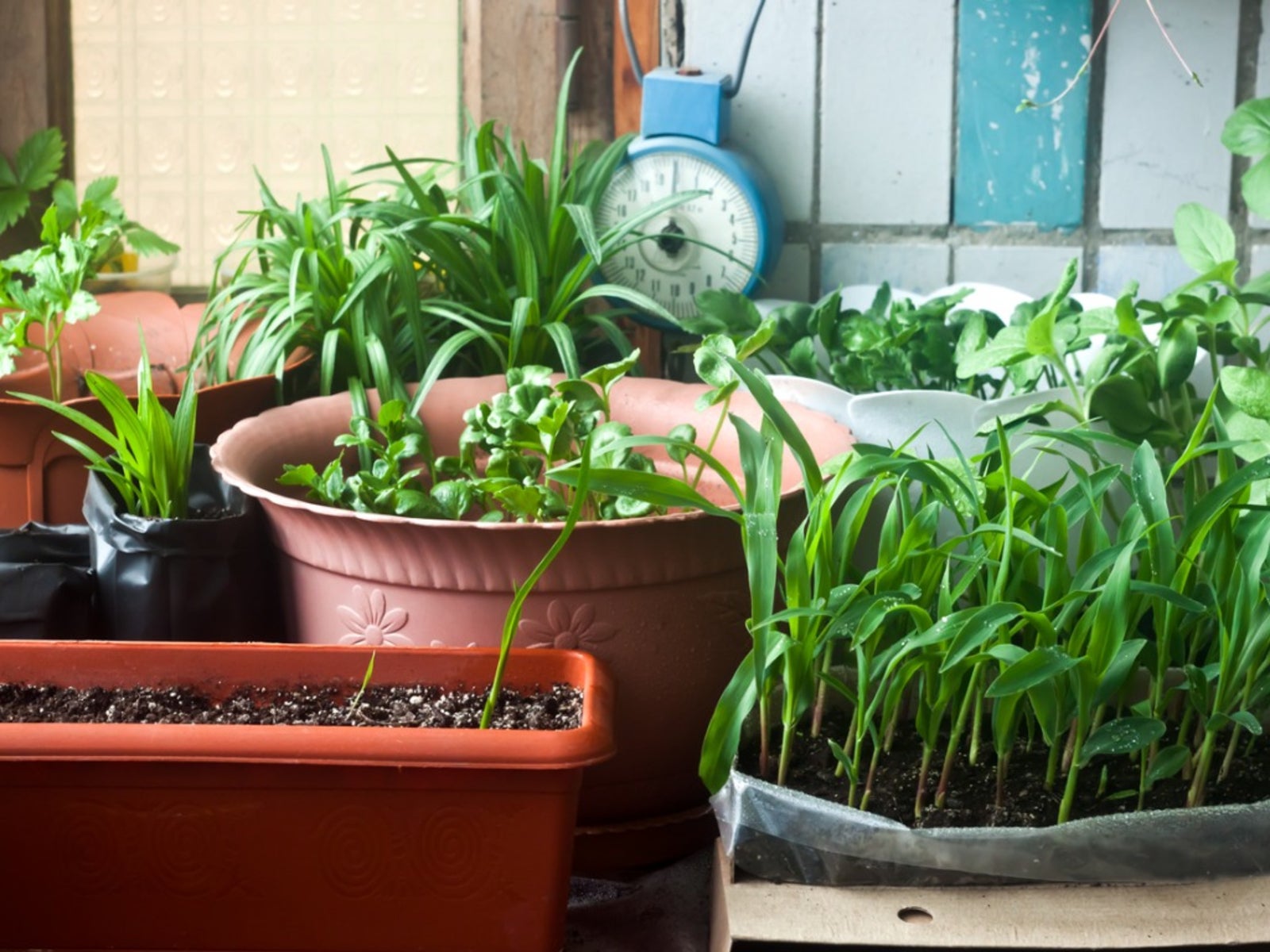Potted Veggies: Alternative Solutions For Urban Gardeners


Sign up for the Gardening Know How newsletter today and receive a free copy of our e-book "How to Grow Delicious Tomatoes".
You are now subscribed
Your newsletter sign-up was successful
There's nothing quite like the sweet taste of fresh, homegrown veggies straight from the garden. What happens though if you're an urban gardener lacking enough space for a vegetable garden? That's simple. Consider growing them in containers. Did you know that nearly any type of vegetable, and many fruits, can be successfully grown in pots? From lettuce, tomatoes, and peppers to beans, potatoes, and even vine crops like squash and cucumbers thrive in containers, especially compact varieties.
Containers for Potted Veggies
Suitable drainage is always important for the successful growth and health of all plants. So as long as you provide drainage holes, just about anything under the sun can be used for growing vegetables, from large coffee cans and wooden boxes to five-gallon buckets and old washtubs. Raising the container an inch or two (2.5-5 cm.) off the ground with bricks or blocks will also help with drainage, as well as with airflow. Depending on the crops, the size of the containers will vary. Most of your larger veggies require around 6 to 8 inches (15-20 cm.) for adequate rooting, so smaller containers should be used for shallow-rooted crops like carrots, radishes, and most of your kitchen herbs. Save the five-gallon (19 L.) buckets or washtubs for larger crops such as tomatoes, beans, and potatoes. Use a suitable potting mix along with compost to achieve healthier plant growth and more optimal produce.
Planting and Care for Container Vegetables
Follow the same planting requirements found on the seed packet or other growing reference aimed at the particular varieties you have chosen. Place your potted veggies in an area with sufficient sunlight that is also well protected from wind, as this can quickly dry out potted plants. Always place the smallest pots in the very front with larger pots placed furthest back or in the center. In order to make use of all available space, consider growing your veggies in windowsills or hanging baskets as well. Keep hanging baskets watered daily since they are more prone to drying out, especially during heat spells. Water your potted veggies every few days as needed, but do not allow them to dry out completely. Feel the soil to determine whether it is damp enough. If your potted veggies are situated in an area prone to excessive heat, you may need to move them to a lightly shaded area during the hottest part of the day or try sitting the pots on shallow trays or lids to hold excess water. This allows the roots to slowly pull up water as needed and helps keep the vegetables cooler; however, plants should not be permitted to sit in water for more than 24 hours. Check your pots often and empty trays to prevent continual soaking. Whenever severe weather is expected, move the potted garden indoors or closer to the house for additional protection. Potted vegetables can produce an adequate supply of food for urban gardeners without the need for large garden plots. Potted veggies also eliminate the need for continual maintenance as well. So if you're an urban gardener looking for fresh, mouth-watering vegetables straight from the garden, why not grow your own by planting them in pots?
Sign up for the Gardening Know How newsletter today and receive a free copy of our e-book "How to Grow Delicious Tomatoes".

Nikki Tilley has been gardening for nearly three decades. The former Senior Editor and Archivist of Gardening Know How, Nikki has also authored six gardening books.